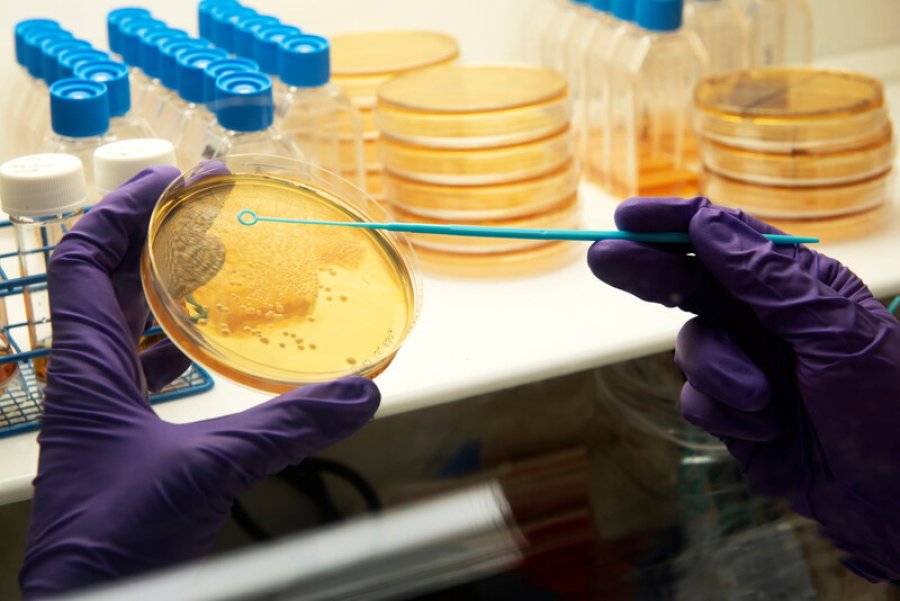
Three years into the COVID-19 pandemic, with Monkeypox, ebola, bird flu and other viral threats also continuing to trouble humanity, it is easy to think that viruses are all bad news. But viruses are not in fact out to get us, and bacteriophage - viruses that infect bacteria - have an increasing role to play in tackling antimicrobial resistance (AMR).
Phage Therapy - coming soon to a hospital near you?
Phage therapy, i.e. the use of bacteriophage to kill off bacteria that are causing an infection, is nothing new: the first documented use was over 100 years ago. However with the discovery and mass production of antibiotics, phage therapy fell out of favour in most parts of the world. Now though, in the face of persistent infections that are not responsive to any antibiotics, scientists and doctors all over the world are returning to the idea of using phage to treat infections.
There are no shortage of success stories, and it’s quite clear that phage therapy works in many different types of infections. Yet there remain numerous logistical and regulatory issues, including finding the right phage for each infection and getting dosing right, and only a handful of patients in the UK have so far benefited from phage therapy.
This looks set to change - in recent months, much progress has been made towards expanding access to phage therapy for UK patients who need it. Some highlights:
- Non-profit company UK Phage Therapy was formed in July 2022. Directed by Dr Josh Jones, the UK’s first NHS Clinical Phage Specialist, UKPT will be the first clinical phage centre and plans to manufacture phages according to Good Manufacturing Practice (GMP), in partnership with Fixed Phage and CPI for use in NHS patients and clinical trials.
- The University of Leicester launched its Centre for Phage Research. Directed by Professor Martha Clokie, the centre provides critical mass for phage therapy research and operates the UK Phage BioBank, which will supply UK Phage Therapy with well-characterised phages to produce for use in patients.
- Innovate UK launched the Phage Innovation Network, aiming to drive innovation in regulation and development of phage-based therapeutics in the UK.
- Scottish Health Technologies Group recommended that phage therapy be considered for difficult-to-treat infections.
Additionally, the UK government’s Science and Technology Committee is holding an inquiry into the antimicrobial potential of bacteriophages, and last month received 34 written submissions. The inquiry is exploring the evidence base for phage as a treatment for infections in humans, barriers and opportunities relating to the development and deployment of phage in the UK, and the adequacy of government funding and support. The submissions make for interesting reading, with many touching on the UK requirement for phages to be manufactured to GMP standards as a major barrier. But UK Phage Therapy are working on this, and note in their submission that “it is appropriate for medicines to be manufactured in accordance with GMP which, although costly, is a surmountable obstacle”.
Other interesting uses of bacteriophage against AMR are also on the horizon.
- Prevention: Oxford Silk Phage Technologies are developing phage-coated materials for use as surgical implants, that could prevent surgical site infections from occurring.
- Surveillance: Researchers in Nepal and Bangladesh are using phages to detect the presence of Typhi, the bacterial agent of typhoid fever, in environmental samples. Drinking Typhi-contaminated water is a major cause of typhoid fever, which is increasingly difficult to treat due to antimicrobial resistance, but the bacteria enter a dormant state to survive in water and are hard to detect by culture (due to dormancy) or PCR (due to very low abundance). These new studies show that water-borne Typhi are highly susceptible to anti-Typhi phage, and plates coated with phage can be used as a cheap and effective method to identify Typhi-contaminated water supplies, which correlate with local blood culture-confirmed case numbers.
If you enjoyed this article and would like to build a career in global health, we offer a range of MSc programmes covering health and data, infectious and tropical diseases, population health, and public health and policy.
Available on campus or online, including flexible study that works around your work and home life, be part of a global community at the UK's no.1 public health university.
